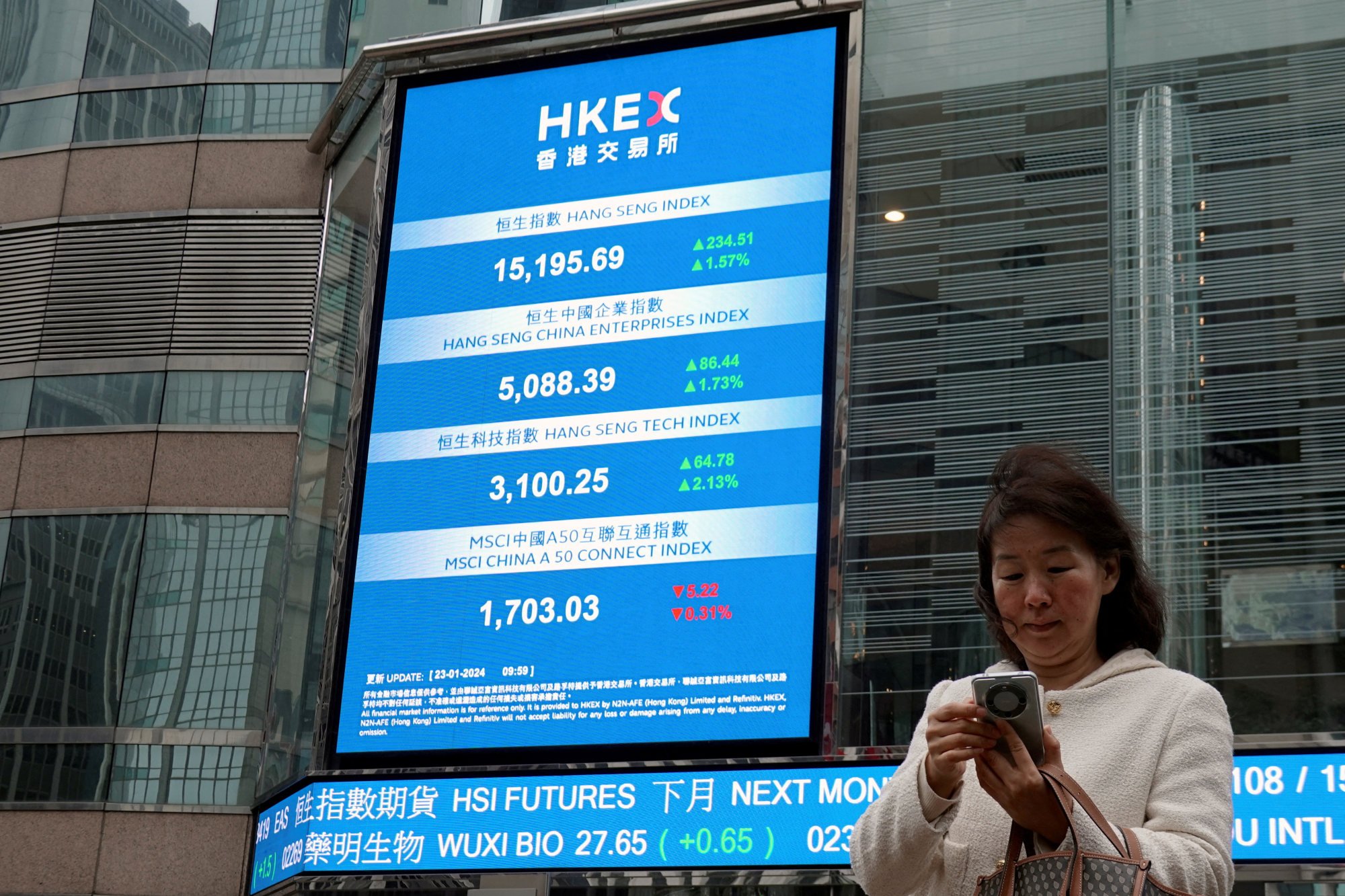China’s measures, designed to improve investor returns and announced in March, have triggered a solid rebound in stocks; the benchmark CSI300 index is up almost 17 per cent from February’s five-year lows.
They have also drawn comparisons with the Tokyo Stock Exchange’s push for capital efficiency that drove the Nikkei to record highs.
But a Japan-style rally is unlikely as China’s reforms have met with scepticism from fund managers, who say it is more about rescuing the market than improving corporate governance.
Government-controlled companies, which account for roughly 30 per cent of market capitalisation in China and Hong Kong, are under the tight grip of the ruling Chinese Communist Party, which could raise conflict of interest issues with non-state shareholders.
In Japan, firms have begun to unwind strategic shareholdings as part of ongoing reforms to be more market-oriented.
Returning money has struck a chord with investors who “have been calling for bumper dividends and more buy-backs”, said Yang Tingwu, fund manager at Tongheng Investment.
However, “Chinese companies have a long way to go in terms of corporate governance”, he added. Under China’s top securities regulator Wu Qing, listed companies are pressured to engage more with investors and improve returns.
This mimics Japan’s corporate reform and South Korea’s “Value Up” programme, said John Pinkel, partner of New-York-based hedge fund Indus Capital, which recently added China exposure.
“The common denominator of these positions: they all have large cash positions, are buying back shares or increasing dividends, and we like their business models,” he said.
The China campaign has seen many firms arm-twisted to pay dividends.
Jason Hsu, chairman and chief investment officer of Rayliant Global Advisors, said that Japanese firms respond well to sticks, and the same strategy works in China, where regulators hope to protect retail investors.

Jilin Expressway and Fangda Special Steel Technlogy, for example, did not intend to pay dividends, but changed plans to return money to investors following questioning by the Shanghai Stock Exchange.
In addition, companies including Chongqing DIMA Industry, SafBon Water Service and Infund Holding scrambled to unveil share buy-back plans after warnings by stock exchanges that they could be delisted if their share prices traded at persistently low levels.
To be sure, concerns linger, especially over state-owned companies, which are tasked with social responsibilities often at odds with shareholder interests.
And while Japan’s stock market revival was aided by foreign inflows, China still faces geopolitical headwinds and global fund managers remain nervous.
“When it comes to Chinese companies, as a minority Western investor, you are not top of the priority,” said Sunil Krishnan, head of multi-asset funds at Aviva Investors in London.
“That is just a structural factor that Western investors have to recognise and accept,” Krishnan said. Still, as markets price in the progress, investors have pocketed gains.
“The way that I look at Chinese governance is that yes, there is still a long way for the Chinese to improve and they are trying to improve it,” said Chi Lo, senior markets strategist at BNP Paribas Asset Management.

